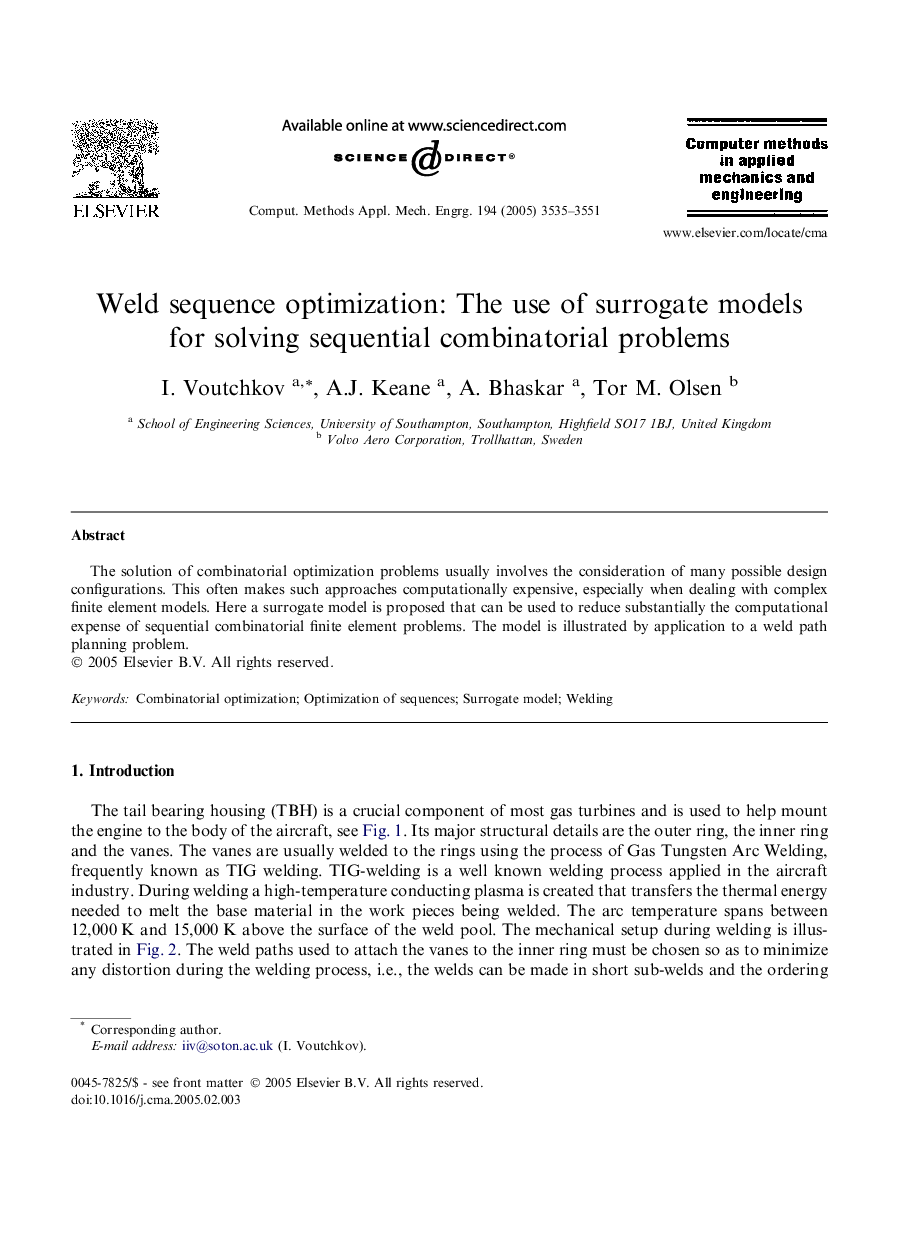| Article ID | Journal | Published Year | Pages | File Type |
|---|---|---|---|---|
| 500830 | Computer Methods in Applied Mechanics and Engineering | 2005 | 17 Pages |
Abstract
The solution of combinatorial optimization problems usually involves the consideration of many possible design configurations. This often makes such approaches computationally expensive, especially when dealing with complex finite element models. Here a surrogate model is proposed that can be used to reduce substantially the computational expense of sequential combinatorial finite element problems. The model is illustrated by application to a weld path planning problem.
Related Topics
Physical Sciences and Engineering
Computer Science
Computer Science Applications
Authors
I. Voutchkov, A.J. Keane, A. Bhaskar, Tor M. Olsen,
